Peptic Ulcer DefinitionThe lining of the stomach, lower esophagus, or small intestine can become infected by peptic ulcers, which are sores. Inflammation brought on by the H. pylori bacteria and erosion brought on by stomach acids are the two main causes of their formation. Rare health issues like peptic ulcers are fairly common. 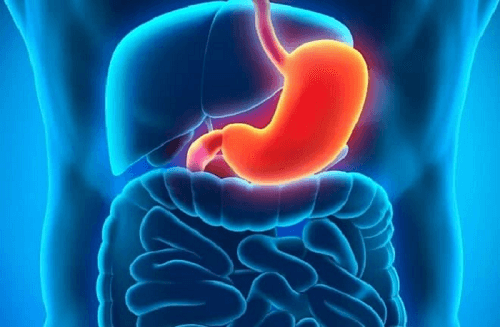
Peptic ulcers come in three different varieties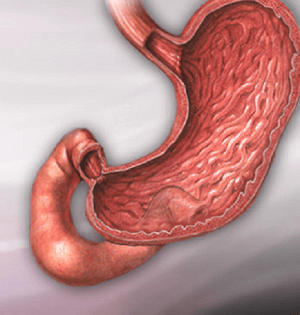
1. Gastric ulcers Internally developing stomach ulcers 2. Esophageal ulcers In the esophagus producing ulcers 3. Duodenal ulcers Ulcers form in the duodenum, the top portion of the small intestine. Peptic Ulcer Causes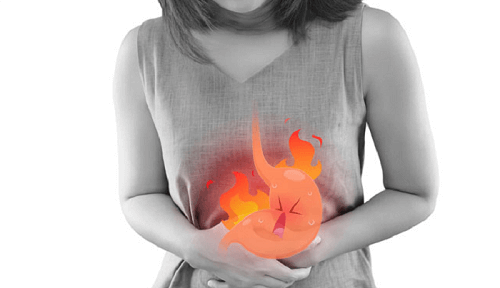
The lining of the small intestine, esophagus, and stomach can deteriorate for various reasons. They are made up of the following: Infection and inflammation of the stomach can be brought on by a kind of bacteria known as Helicobacter pylori (H. pylori). constant use of anti-inflammatory medicines such as ibuprofen (Advil), aspirin (Bayer), and others (risk associated with this behavior increases in women and people over the age of 60)
Signs of Stomach Ulcers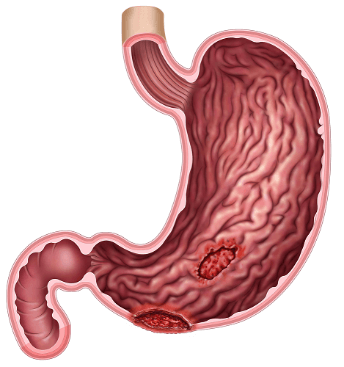
Burning abdominal pain that radiates from the navel to the chest, which can be minor to severe, is the most typical sign of a peptic ulcer. Sometimes the pain will keep you awake during the night. Early on, small peptic ulcers may not show any symptoms. Some typical peptic ulcer symptoms include:
Peptic Ulcer Tests and Examinations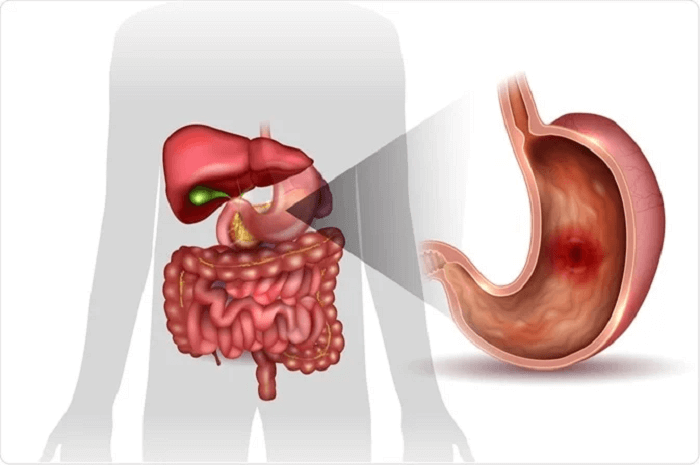
Two different tests may be used to identify peptic ulcers. Their names are upper gastrointestinal (GI) series and upper endoscopy. The Upper Endoscopy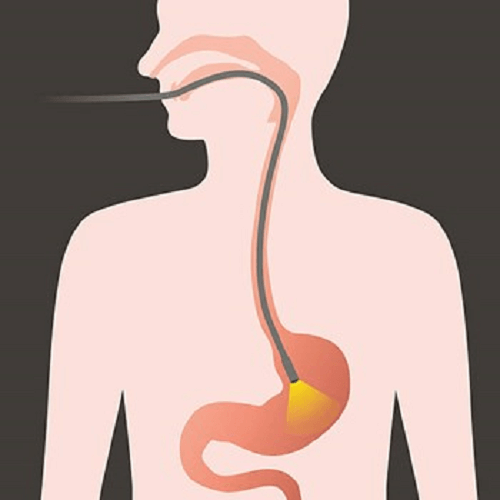
Your doctor will do this procedure to look for stomach and small intestine ulcers by putting a long tube with a camera down your neck. Your doctor can also take tissue samples using this tool for analysis. Not all circumstances necessitate an upper endoscopy. Nonetheless, those with a greater risk of stomach cancer are advised to get this treatment. Those above the age of 45 and those who suffer the following are included in this:
Upper GI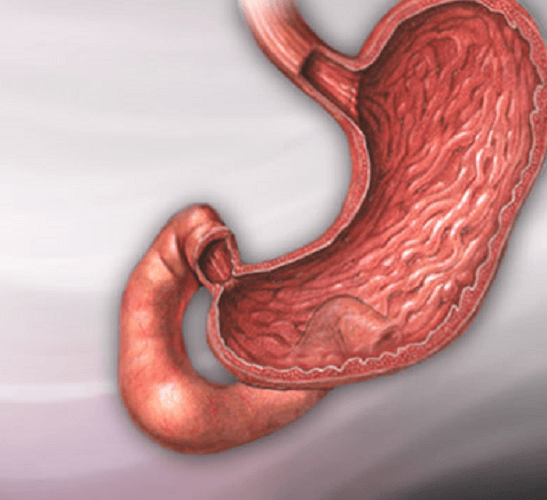
Your doctor could advise an upper GI test instead of a swallowing test if you don't have any trouble swallowing and have a low risk of stomach cancer. You will consume a thick barium liquid (barium swallow) for this procedure. A technician will then take an X-ray of your stomach, esophagus, and small intestine. Your doctor can see the ulcer and cure it thanks to the liquid. Your doctor will also do a test to check for H. pylori infection in your stomach since this infection can progress to peptic ulcers. Peptic Ulcer Treatment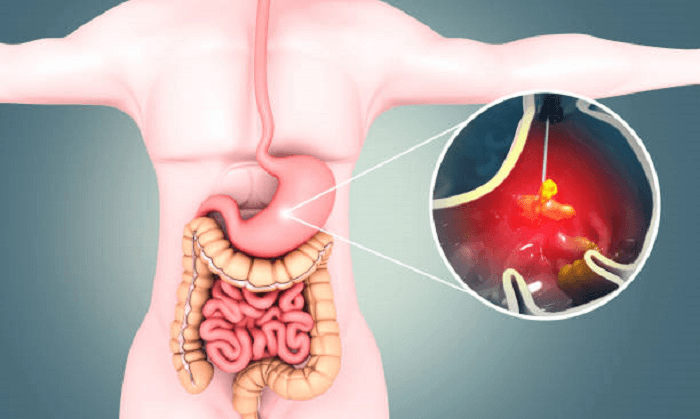
The actual reason will determine the treatment for your ulcer. If testing reveals an H. pylori infection, your doctor will advise taking a combination of medicines. For up to two weeks, the medications must be administered. Proton pump inhibitors (PPIs) and antibiotics are two drugs used to treat infections and lower stomach acid, respectively. Antibiotic treatments might cause modest side effects, including diarrhea or upset stomach. See your doctor if these side effects cause discomfort or don't go away with time. If your doctor determines that you do not have an H. pylori infection, they may advise taking a PPI (like Prilosec or Prevacid) for up to eight weeks to control stomach acid and hasten the healing of your ulcer. Other benefits of acid blockers like famotidine (Pepcid) are reduced stomach acid and ulcer discomfort. Also, your doctor could advise sucralfate (Carafate), which coats the stomach and lessens peptic ulcer symptoms. Complications With a Peptic Ulcer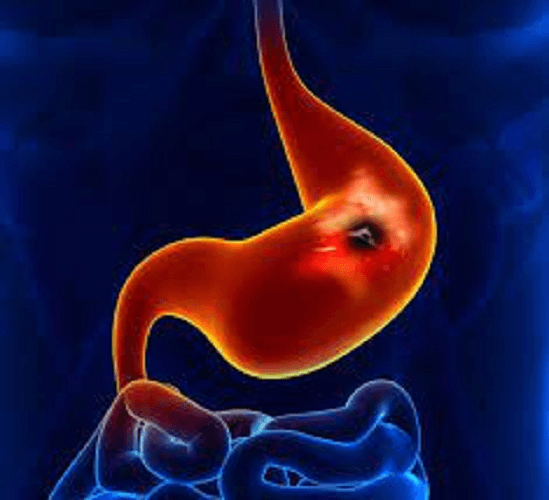
Ulcers that are left untreated may worsen over time. They may trigger additional, more serious medical problems like: Perforation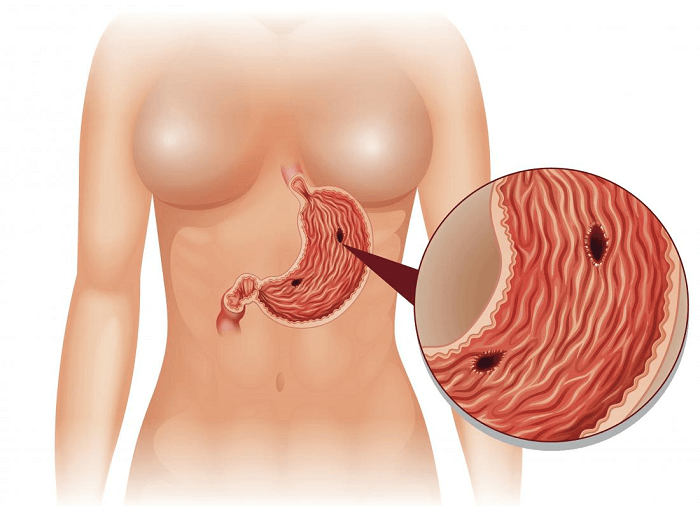
An infection results from a hole in the stomach or small intestinal lining. A perforated ulcer can cause sudden, excruciating stomach discomfort. Internal bleeding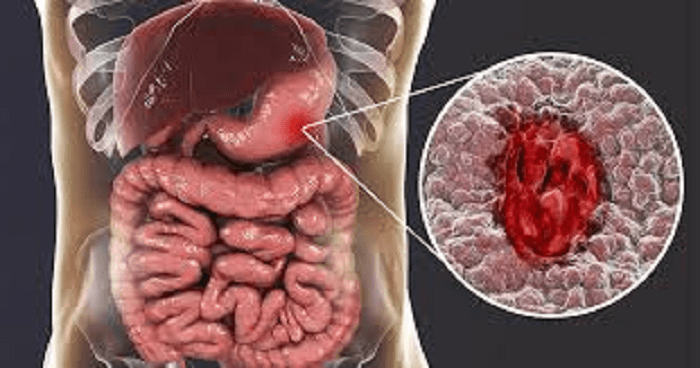
Since bleeding ulcers can cause severe blood loss, hospitalization is often necessary. Lightheadedness, wooziness, and dark stools are signs of a bleeding ulcer. Scar tissue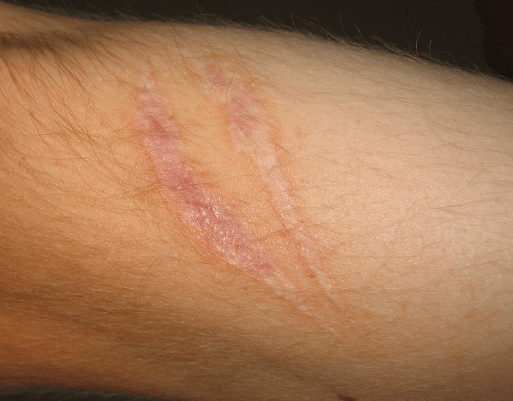
After an accident, thick tissue known as scar tissue forms. Because of this tissue, food has difficulty moving through your digestive tract. Vomiting and weight loss are indications that there is scar tissue. These three problems are significant and could necessitate surgery. If you suffer any of the following symptoms, get emergency medical help right away:
Prediction for Peptic Ulcer
The majority of peptic ulcers heal with the right care. If you unexpectedly stop taking your medicine or continue to use smoke, alcohol, or nonsteroidal painkillers while undergoing therapy, you risk not recovering. After your initial treatment, your doctor will arrange a follow-up consultation to assess your progress. Ulcers that don't heal after treatment are considered resistant. If the initial course of therapy for your ulcer is unsuccessful, this may mean:
Peptic Ulcer Prevention
Making lifestyle and behavioral decisions can decrease the chance of getting peptic ulcers. They consist of the following:
Causes and Ulcer-Related Risk Factors
Long-term usage of NSAIDs, such as aspirin and ibuprofen, as well as a bacterial infection called Helicobacter pylori, are the two most common causes of ulcers (H. pylori). If you have a stomach ulcer, what to eat
Since the H. pylori bacteria is now acknowledged to play a key role in the development of ulcers, researchers are examining whether certain foods can help in the fight against infection. In addition to taking the antibiotics and acid-blocking medicines prescribed by your doctor for the treatment of your ulcer, consuming the following foods may also be effective in preventing the bacteria that causes ulcers:
Why Are They Helpful?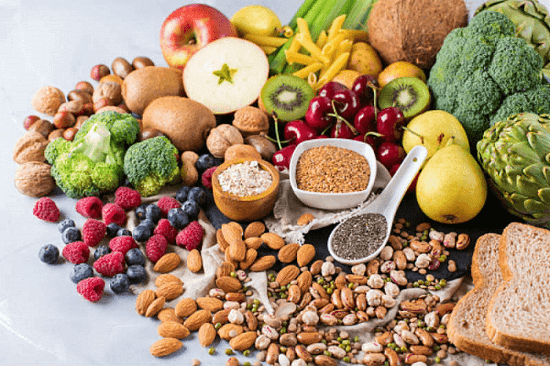
The Benefits of Supplements May be Good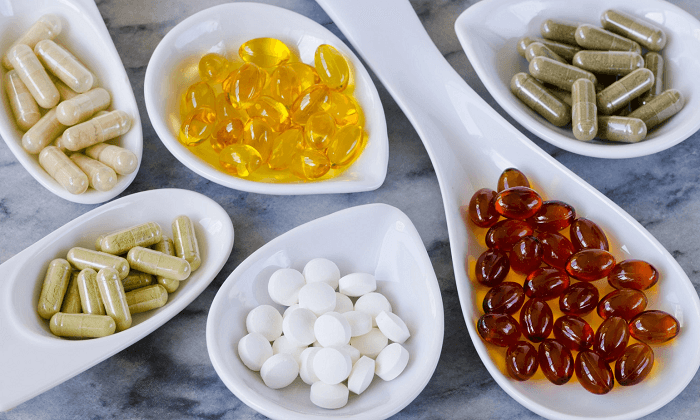
If an antibiotic treats your stomach ulcer, include a probiotic supplement in your diet. This may lessen the symptoms brought on by antibiotics. It could also make the antibiotic more effective. See your doctor about the ideal probiotic to take along with your antibiotic treatment. Supplements including Lactobacillus, Bifidobacterium, and Saccharomyces have demonstrated benefits in patients with H. pylori ulcers. Due to their effectiveness against H. pylori, curcumin extracts and deglycyrrhizinated licorice (given an hour before meals) have shown promise in certain ulcer trials. Purchase curcumin and deglycyrrhizinated licorice extracts. Foods to Avoid if You Have an Ulcer and Acid Reflux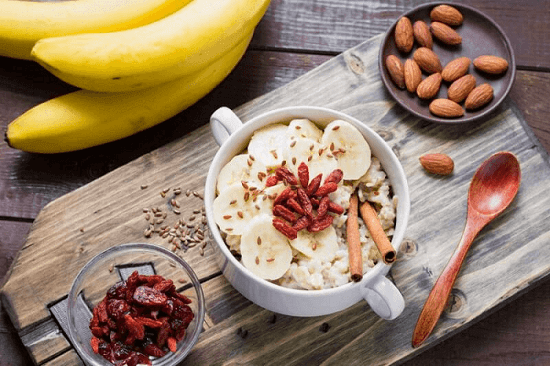
Acid reflux can occur in certain ulcer patients. Some individuals may experience LES, or lower esophageal sphincter, relaxation from eating particular foods. Acid can more easily back up into the esophagus with a loosened LES, leading to discomfort, indigestion, and heartburn. The following foods may worsen acid reflux:
Ulcer Treatment Options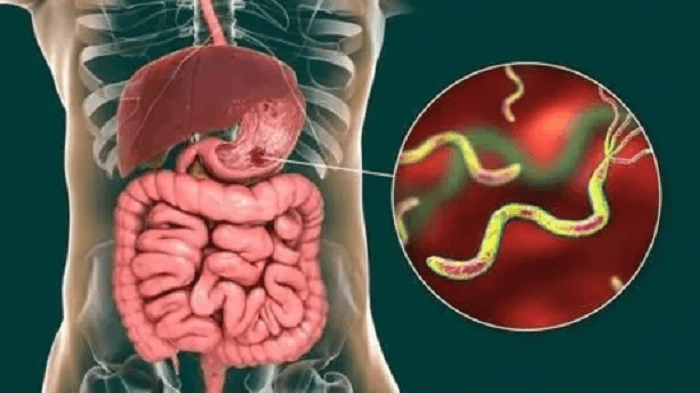
Antibiotics will most certainly be required to treat ulcers by H. pylori. The best approach to ensure your therapies are working and your ulcers are healing is strictly following your treatment plan and having frequent check-ups with your doctor. A short-term medication will also be prescribed to you that stops your stomach from creating or secreting as much acid as it usually does. This medicine could be an H2 blocker or a proton pump inhibitor. Nine Home Treatments for Ulcers Proven by Research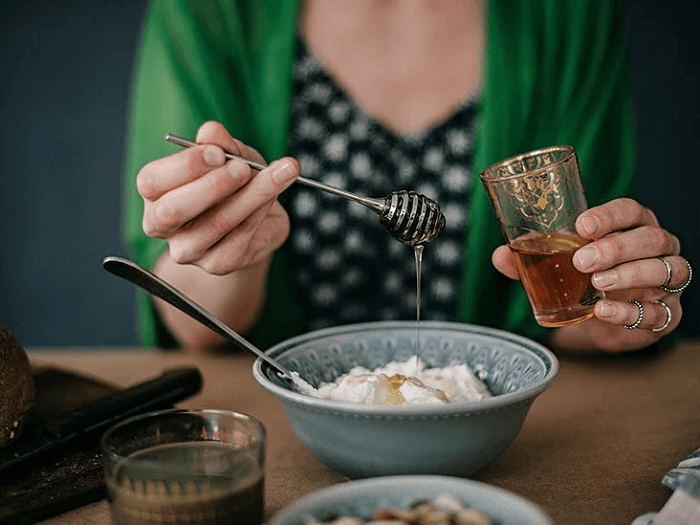
Your body may be helped by specific meals, herbs, and supplements to battle the bacterium that frequently causes stomach ulcers. Sores known as ulcers can appear in many body areas. The lining of the stomach is where gastric ulcers, also known as stomach ulcers, form. They affect between 2.6% and 6.1% of the population, making them quite prevalent. They can be brought on by several things that upset the equilibrium in your stomach's surroundings. Infections brought on by the Helicobacter pylori bacteria are the most typical. The usage of anti-inflammatory medicines like aspirin and ibuprofen is another major cause, as is stress, smoking, drinking too much alcohol, and being a heavy drinker. Traditional anti-ulcer treatments frequently use medicines with unfavorable side effects, including headaches and diarrhea. Because of this, medical experts and people with ulcers have been fueling the interest in alternative treatments. This article contains nine all-natural ulcer treatments that have scientific support. 1. Cabbage Juice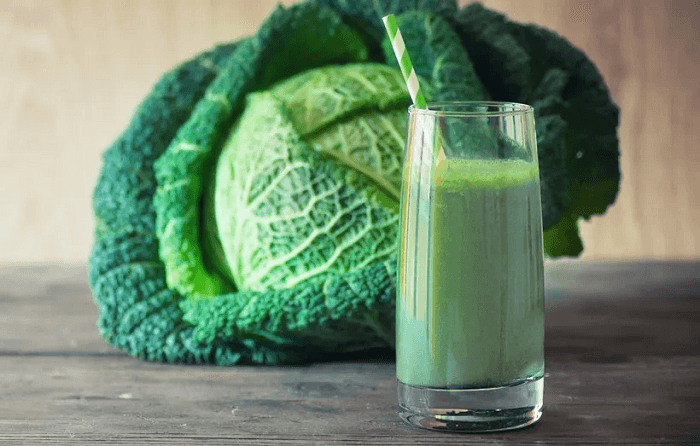
One effective natural ulcer treatment is cabbage. Doctors allegedly used antibiotics to treat stomach ulcers even before antibiotics were developed. Having a lot of vitamin C, an antioxidant that both treats and prevents H. pylori infections are beneficial. The most typical reason for stomach ulcers is one of these illnesses. According to various animal experiments, cabbage juice helps treat and prevent digestive ulcers, including those that damage the stomach. Early research on people found that drinking fresh cabbage juice every day seems to speed up the healing of stomach ulcers more quickly than the conventional treatment at the time. In one study, 13 people with stomach and upper digestive tract ulcers received about one quart (946 ml) of fresh cabbage juice throughout the day. After receiving therapy for 7 to 10 days on average, these patients' ulcers were cured. This is 3.5 to 6 times quicker than the typical recovery period noted in earlier research in patients with conventional treatment. In another experiment, 100 people with stomach ulcers who had previously failed to respond to conventional treatment were given the same amount of fresh cabbage juice. During a week, 81% were symptom-free. Nevertheless, no recent experiments could be found, and experts have yet to identify which components promote healing precisely. Moreover, both early experiments included a suitable placebo, making it difficult to determine whether the cabbage juice caused the benefit. 2. Honey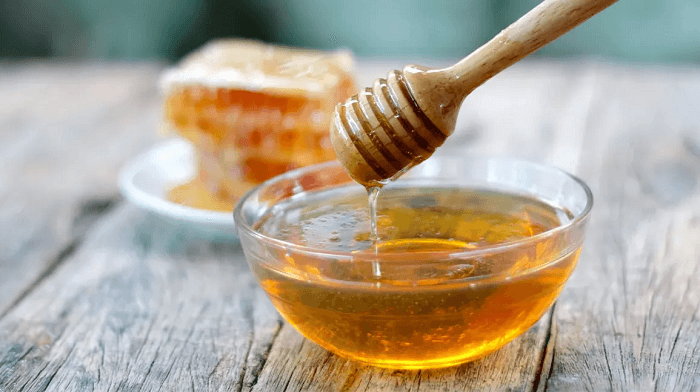
Honey is a food high in antioxidants and has been related to several health advantages. These advantages include improved eye health and a lower chance of heart disease, stroke, and even some forms of cancer. Also, it seems that honey helps many wounds, particularly ulcers, heal faster. However, scientists think that honey's antibacterial characteristics might aid in the fight against H. pylori, one of the most typical causes of stomach ulcers. Animal studies have shown that honey can speed up healing and decrease the risk of ulcers. However, human studies are required. 3. Licorice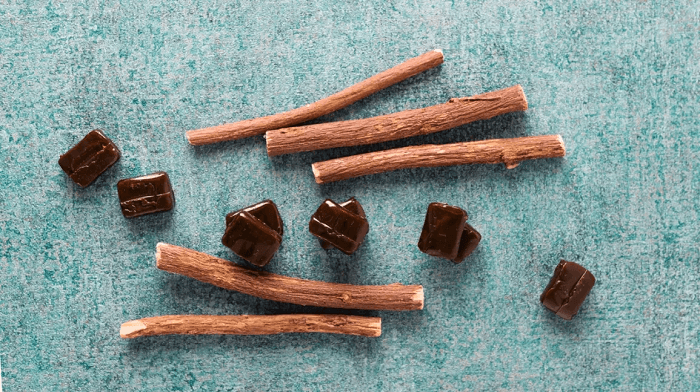
Asia and the Mediterranean are the traditional home of the spice licorice. It is a well-known traditional herbal remedy made from the dried root of the Glycyrrhiza glabra plant and is used to treat several illnesses. Licorice root may be able to both prevent and cure ulcers, according to certain studies. For example, licorice may encourage the production of more mucus in the intestines and stomach, which helps protect the lining of the stomach. The additional mucus could also improve healing and lessen discomfort brought on by ulcers. Furthermore, according to research, some licorice-derived chemicals may inhibit the development of H. pylori. Nevertheless, studies often rely on taking these substances as supplements. It is, therefore, uncertain how much-dried licorice root would need to be consumed for the same potential health benefits. Licorice-flavored treats or candy should not be mistaken for dried licorice root. As licorice candy often contains a lot of sugar, it will likely have a different result. Licorice may not always be effective as a treatment for ulcers because some trials show no impact. Moreover, licorice can have negative effects, including muscular soreness or numbness in the limbs, and can interact negatively with some drugs. Before consuming more licorice in your diet, discuss it with your doctor. 4. Turmeric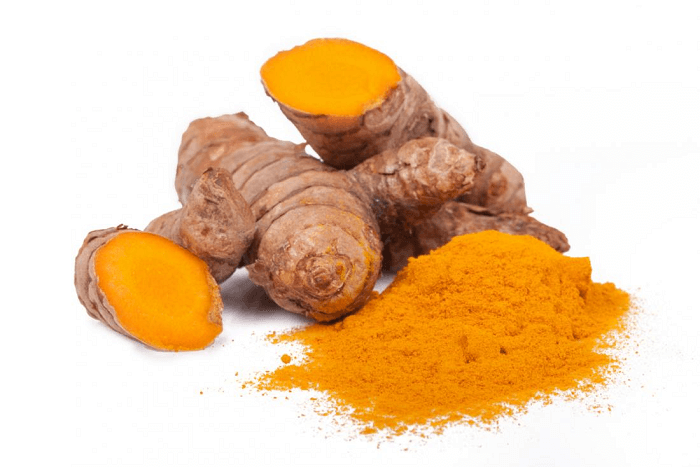
Indian cuisine frequently uses South Asian spice turmeric. It may be quickly identified thanks to its deep yellow hue. It has been suggested that turmeric's active ingredient, curcumin has therapeutic properties. These consist of improved blood vessel function, less inflammation, and a decreased chance of developing heart disease. Animal studies have recently been conducted to test curcumin's efficacy in treating ulcers. It appeared to have great medicinal qualities, especially for minimizing the damage caused by H. pylori infections. Moreover, it could encourage more mucus production, effectively protecting the stomach lining from irritants. There has yet to be much research on people. Twenty-five people in one experiment received 600 mg of turmeric five times per day. In 48% of individuals, ulcers were cured after four weeks. 76% of patients were ulcer-free after twelve weeks. In another, 500 mg of turmeric was given four times daily to people with positive H. pylori tests. 63% of patients were ulcer-free after the prescribed four-week course of therapy. Eight weeks later, this number rose to 87%. It is challenging to determine if the turmeric was why the patients' ulcers healed, even though neither of these experiments included a placebo. Thus, further research is needed. 5. Garlic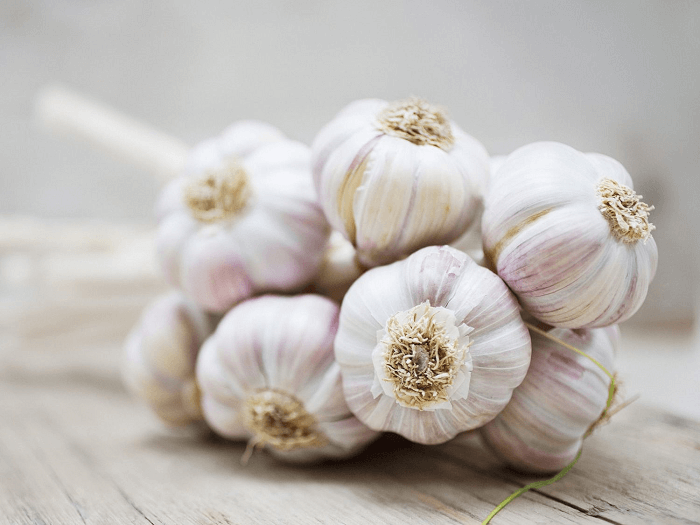
Garlic is another food with antimicrobial and antibacterial properties. In animal studies, garlic extracts enhanced ulcer healing and even reduced the likelihood that an ulcer would ever form. Also, research in the lab, on animals, and in people suggest that garlic extracts may help reduce the formation of H. pylori, one of the most frequent causes of ulcers. In recent research, individuals with H. Pylori infections who consumed two raw garlic cloves daily for three days substantially decreased the number of germs in their stomach lining. Nevertheless, not all researchers successfully reproduce these results; hence, more investigation is needed before any conclusions can be reached. 6. Mastic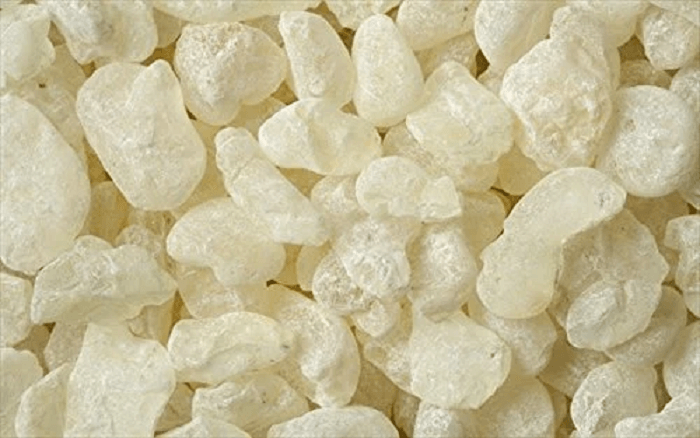
The Pistacia lentiscus tree, sometimes known as the mastic tree, supplies the resin known as mastic. Mastic is also described as Arabic gum, Yemen gum, and Chios tears. The mastic tree, often found in the Mediterranean, produces brittle transparent resin when its sap is dried. This resin chews into a white, opaque gum that tastes like pine. Mastic has a long history of treating digestive disorders using conventional medicine, including Crohn's disease and stomach ulcers. Animal research conducted more recently suggests that it could work effectively as a natural ulcer treatment. In addition, research on 38 people with ulcers shows that daily consumption of 1 g of mastic reduced ulcer-related symptoms by 30% more than the placebo. 70% of individuals in the mastic group had healed ulcers after the two-week trial period, compared to 22% in the placebo group. Mastic also seems to have antibacterial effects on H. pylori. A recent study found that taking 350 mg of mastic gum thrice daily for 14 days eliminated H. pylori infections 7-15% more efficiently than the standard therapy. Long-term mastic use is usually considered safe, even though this conclusion has yet to be consistently seen in all research. Hence, it could be worthwhile for you to give it a try. Most health food stores carry mastic as a supplement or gum. 7. Chili Peppers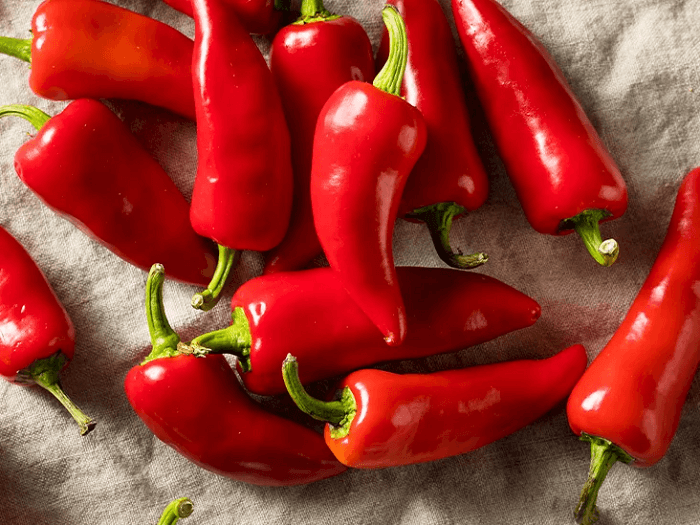
People with stomach ulcers commonly believe that consuming chili peppers often or in significant amounts can lead to stomach ulcers. Limiting or avoiding chili pepper consumption is frequently recommended for patients with ulcers. Recent studies suggest these peppers may help prevent ulcers rather than cause them. That's because capsaicin, an active component found in chili peppers, appears to lessen the creation of stomach acid and improve blood flow to the stomach lining. These two elements may both prevent or treat ulcers. Capsaicin, an ingredient in chili peppers, may also aid in enhancing mucus production, which can protect the stomach lining. Animal studies primarily, but not exclusively, demonstrate positive outcomes. There was, however, little human research available. However, remember that the capsaicin supplements utilized in the animal trials above were not full chili peppers. Such supplements made some people's gastrointestinal pain more severe, according to at least one research. As a result, it could be advisable to continue with the complete food and modify your consumption following your unique tolerance. 8. Aloe Vera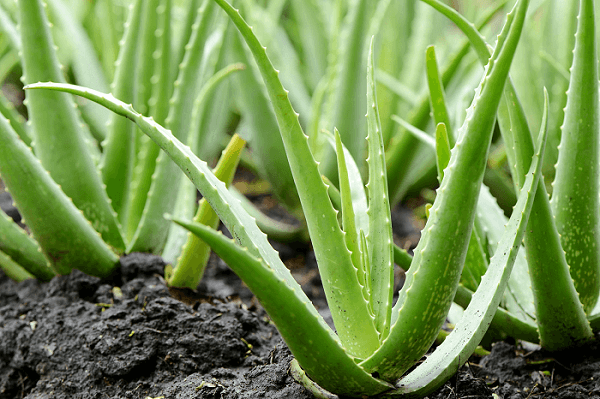
Aloe vera is a common cosmetic, medicinal, and food plant. It is widely known for its capacity to kill bacteria and heal the skin. Surprisingly, aloe vera may work well as a stomach ulcer treatment. In one experiment, rats with ulcers that started eating aloe vera had significantly less stomach acid produced. Aloe vera was proven to be just as successful in treating ulcers in many animal trials, including those involving rats. So far, only some clinical research studies have been carried out. One scenario involves successfully using concentrated aloe vera juice to treat 12 individuals with stomach ulcers. In another experiment, treating ulcers with antibiotics and 1.4 mg/pound (3 mg/kg) of aloe vera daily for six weeks was just as successful as treating them with traditional methods. Consuming aloe vera is usually considered harmless, and the above investigations have produced some encouraging results. Nonetheless, further human research is necessary. 9. Probiotics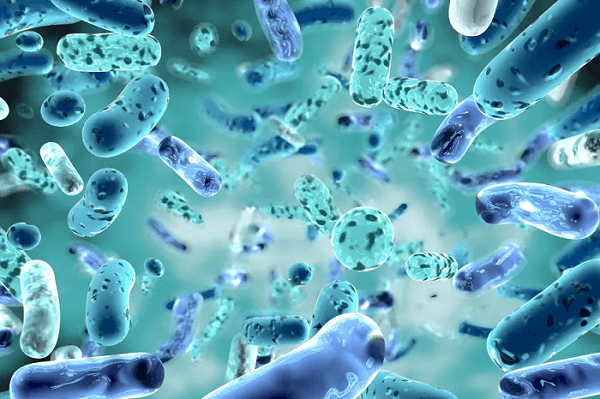
Live bacteria, known as probiotics, provide a variety of health benefits. Its advantages include the capacity to prevent and cure ulcers and improve stomach and mental health. While the exact mechanism is unknown, probiotics encourage the creation of mucus, which coats the stomach lining and protects it. They could also encourage the growth of new blood vessels, making it simpler to deliver healing medicines to the ulcer's area and improving the healing process. It's interesting to think that probiotics might directly prevent H. pylori infections. Also, it appears that these helpful bacteria increase the effectiveness of traditional treatments by about 150% while lowering the negative effects of diarrhea and other antibiotics by up to 47%. The dose required for the maximum benefits is now the subject of research. Despite this, most of the above research showed benefits after consuming 200 million to 2 billion colony-forming units (CFU) for two to sixteen weeks. Compared to supplements, probiotic-rich foods often offer fewer colony-forming units per serving, but they are still beneficial to include in your diet. Excellent sources include pickled vegetables, tempeh, miso, kefir, kimchi, sauerkraut, and kombucha. Foods to Avoid
Similar to how certain foods can help with peptic ulcers or prevention, others have the opposite impact. Individuals attempting to cure or avoid stomach ulcers might think about limiting their consumption of the following foods: 1. Milk
Major research suggests milk increases the release of stomach acid and should be avoided by persons with ulcers, despite it originally being suggested to assist in lower stomach acidity and relieve discomfort. 2. Alcohol
Consuming alcohol can harm the stomach and digestive system, increasing the risk of ulcers. 3. Soft drinks and coffee
Even coffee can aggravate the stomach lining by boosting the formation of stomach acid. 4. Fatty and spicy foods
Some folks may become irritated by extremely hot or greasy meals. Chili peppers might be an exception, depending on the individual. In addition to avoiding the foods mentioned above, other strategies for promoting healing and reducing discomfort include eating small, frequent meals, snacking throughout the day, and taking time. Additionally, two more effective anti-ulcer strategies are avoiding smoking and decreasing stress. The conclusionUncomfortable medical conditions such as stomach ulcers are rather prevalent. The natural treatments mentioned above may benefit both the prevention of stomach ulcers and their recovery. In some circumstances, they might improve the efficacy of recommended treatments and minimize the possibility of harmful side effects. It's crucial to highlight that it still needs to be discovered if these natural treatments are as beneficial as traditional medicine in most situations. So, before self-medicating, people who have ulcers should see a healthcare expert.
Next TopicSense Definition
|
 For Videos Join Our Youtube Channel: Join Now
For Videos Join Our Youtube Channel: Join Now
Feedback
- Send your Feedback to [email protected]
Help Others, Please Share










